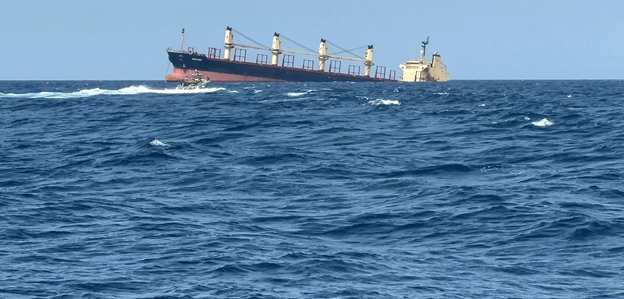Behind the Headlines: You may have heard a lot of news in the recent past telling you that there is an impact of this issue on the whole of the ships that pass through the Red Sea, which I think is hidden from our eyes or maybe they don’t. In all the news we are ignoring this but I think we should highlight it and let people know that all the ships passing through the Red Sea are openly threatened. When we were going to Singapore after passing through, we were told clearly on VHF by the Babylon Mandab in the Red Sea that if any of your ships are associated with Israel, we will be attacked.
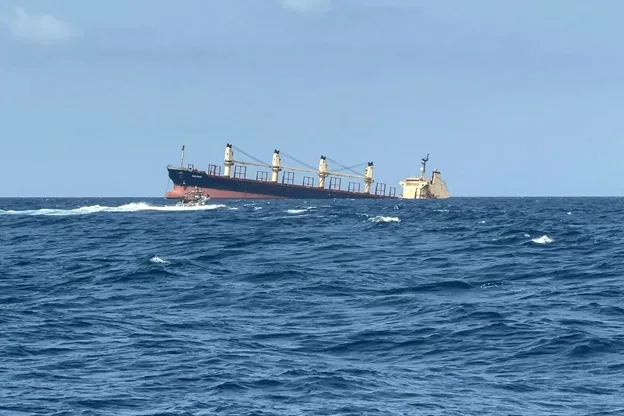
Table of Contents
The Complex Fabric of Conflict: A Connection Uncovered
It is said that all these actions that Israel is doing are its retaliation, but now you will start to connect the fabric of the story by justifying the whole story of what happened that Europe combined task force, which is of Houthi. Now the United States has started attacking Yemen again justifying the same thing. Saudi Arabia was already attacking, Britain was allied with the United States, so now the United States has got another ground to attack.
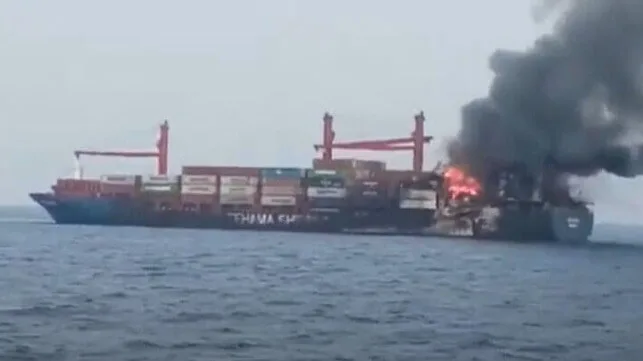
The Curious Case of Ship Attacks: Navigating the Truth
You must have seen it, I passed there myself, so I saw that there was another ship behind us that was attacked, leaving one ship behind and it was attacked because of some has no relation, so we have not had any sort of attack on our ships, on any of them. They are not so public, because obviously the security situation is still there and especially when the pirates were in full operation over here and hijacking the ships, the information of the ships was not so easily given.
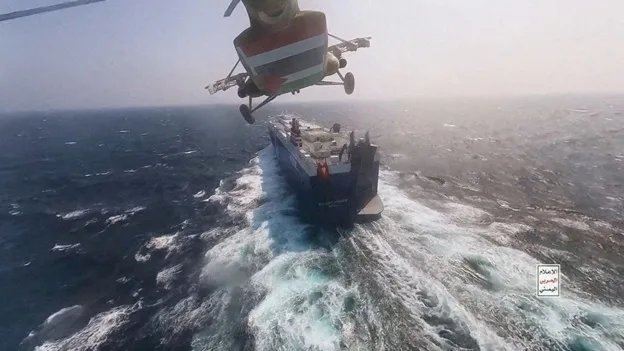
Unraveling the Mystery: Origins of Information
Then, after that, whose cargo was loaded on our ship, we know about two or four people, we also know about two or four companies, but we don’t know who his father, grandfather, grandfather were. We don’t know about the relatives, but surprisingly, the Houthis have the information and the plane on which the attack is carried out is somehow related to Israel. Where did they get this information from? Yes, this information is not available to the governments of the countries, if you are in doubt about this, then it must be available to everyone.
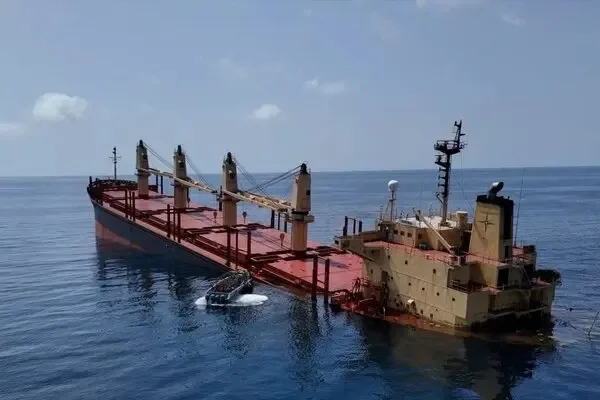
Questioning Sources: The Intrigue of Technology
When Russia broke up and Ukraine was to be created, Ukraine had sold out a lot of nuclear material, Pakistan and India are two countries that washed their hands well in this flowing Ganga, both countries used to take such things from there. There were those whose trade is prohibited, which neither India nor Pakistan can buy, but since Russia was broken, Ukraine had those things and there was a market inside Ukraine, so at the time when it was from there. They used to take all these things, then no one knew from ear to ear that these goods from Ukraine were coming to Pakistan and India. We knew, we used to talk to each other.
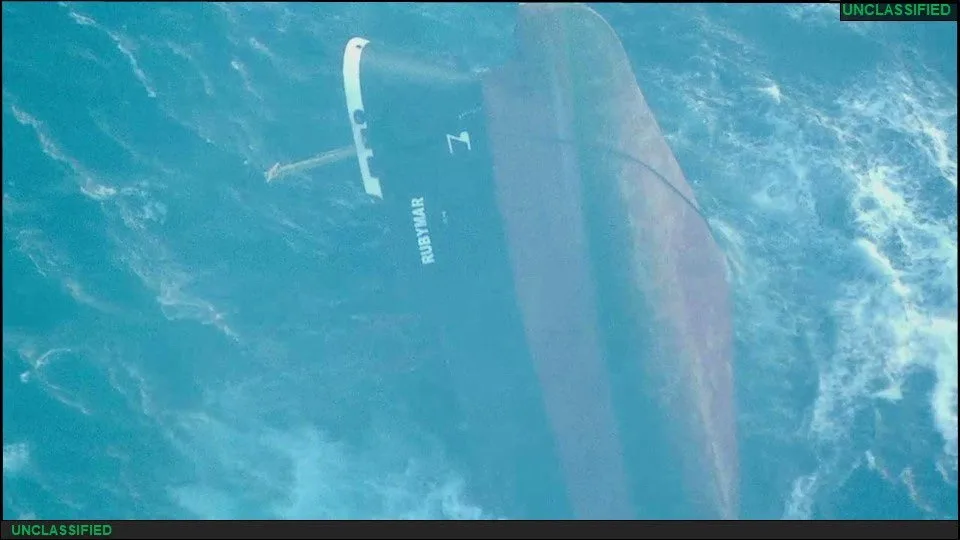
Evaluating Implications: The Impact on Global Trade
Something is like that whenever you have to open a new market, if that market is not open, then you have to take such steps again, whether they are ready to open a market and you get a justification to do so. Based on this, you should read that mask and look carefully at all the conflicts that have happened till now. After all, the opposing party, no matter how powerful they want to be, should at least find a justification, because as many European countries as there are America, their people, their people, they live in their places.
Navigating the Future: Ramifications for International Trade
Now take the example of NASA. NASA is an organization that has done a lot of work in space technology. We are talking about the European Space Agency. These two space agencies have done a lot of work. They have landed on the moon, but they have sent them into space, but they are always asked questions about whether they are investing the money we are giving them in the right place or not and against NASA. So, there have been many demonstrations that yes, we don’t have this in America, they are investing money in space, what are we going to do in space, let’s fix the issue here first. The war was fought and the demonstrations were done properly. The government has to create a proper environment first so that even if something is said against us, it should not be too much. I am talking about the time when the attack started. We can’t pass through here now, who has to bear all these monetary losses. Now, if these ships do not go through the Red Sea and through Switzerland, then they will go to Cape Town, which means that the route to the South of Africa will be long, the passage of 10 to 12 days will be long.
Conclusion: Behind the Headlines
The situation in the Red Sea presents a complex web of geopolitical tensions and maritime threats that demand our attention. Behind the headlines lie deeper narratives of retaliation, information dissemination, and the impact on global trade. As we unravel the mysteries surrounding ship attacks and the origins of information, it becomes evident that the ramifications extend far beyond the waters of the Red Sea. For more information, so please visit this link.
In evaluating these implications, it is essential to consider the broader context of international relations and the intricate dynamics at play. The need for transparency and accountability in governance becomes paramount, particularly in times of conflict and crisis.
Moving forward, it is imperative for stakeholders to engage in dialogue, seek peaceful resolutions, and prioritize the safety and security of all those involved. By fostering cooperation and understanding, we can navigate towards a future where the seas are safer, and global trade can thrive without fear or uncertainty.
Frequently Asked the Questions (FAQs) : Understanding the Red Sea Crisis
- What is the Red Sea Crisis?
The Red Sea Crisis refers to the escalating tensions and threats faced by ships passing through the Red Sea, particularly those with connections to Israel. These threats include missile attacks, drone strikes, and other forms of aggression. - What is the significance of the Red Sea for global trade?
The Red Sea serves as a vital maritime route connecting Europe, Asia, and Africa. It facilitates the transportation of goods, including oil and other commodities, making it a crucial artery for international trade. - Who is behind the attacks on ships in the Red Sea?
While specific perpetrators may vary, there are indications that certain groups or nations may be responsible for the attacks. The involvement of drones, missiles, and other sophisticated weaponry suggests a coordinated effort. - What are the implications for international relations?
The Red Sea Crisis has significant implications for international relations, potentially leading to diplomatic tensions and economic disruptions. It underscores the importance of maintaining stability and cooperation in the region. - How are governments and international organizations responding to the crisis?
Governments and international organizations are monitoring the situation closely and working to ensure the safety of maritime traffic in the Red Sea. Efforts may include increased surveillance, diplomatic initiatives, and collaborative security measures. - What can ship operators do to protect themselves?
Ship operators should remain vigilant and adhere to recommended security protocols when navigating the Red Sea. This may include coordinating with naval forces, implementing defensive measures, and staying informed about potential threats. - How might the Red Sea Crisis impact global trade routes?
The escalation of tensions in the Red Sea could lead to disruptions in global trade routes, forcing ships to seek alternative paths or incur additional costs. This could have ripple effects on supply chains and commodity prices worldwide.

